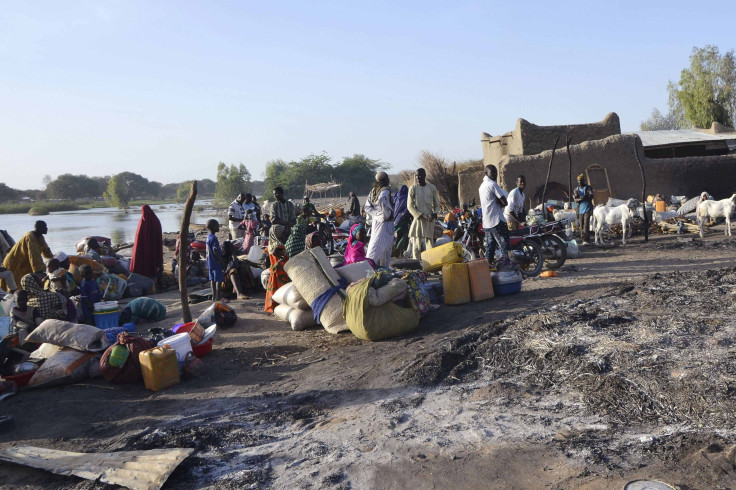Nigeria's Boko Haram Pledges Allegiance To Islamic State: Audio Clip

LONDON (Reuters) - Nigeria's militant Islamist group Boko Haram pledged allegiance on Saturday to Islamic State, which rules a self-declared caliphate in parts of Iraq and Syria, according to an audio clip posted online.
The symbolic move highlights increased coordination between jihadi movements across north Africa and the Middle East and prompted an appeal from Nigeria's government for greater international help in tackling the Boko Haram insurgency.
Boko Haram has killed thousands and kidnapped hundreds during its six-year campaign to carve out an Islamist state in northern Nigeria. In recent months it has increased cross-border raids into Cameroon, Chad and Niger.
"We announce our allegiance to the Caliph ... and will hear and obey in times of difficulty and prosperity, in hardship and ease," read an English language translation of the audio broadcast in Arabic that purported to be from the Nigerian militant group.
"We call upon Muslims everywhere to pledge allegiance to the Caliph," it read.
The pledge of allegiance was attributed to Boko Haram leader Abubakar Shekau.
The audio script identified the Caliph as Ibrahim ibn Awad ibn Ibrahim al-Awad al-Qurashi, who is better known as Abu Bakr al-Baghdadi, the leader of Islamic State and self-proclaimed caliph of the Muslim world.
"(The audio) is confirming what we always thought. It's sad, it's bad," said Nigerian government spokesman Mike Omeri.
"It's why we were appealing to the international community ... Hopefully the world will wake up to the disaster unfolding here," he told Reuters.
On Saturday, four bomb blasts killed at least 50 people in the northeastern Nigerian city of Maiduguri in the worst attacks there since Boko Haram militants tried to seize the town in two major assaults earlier this year.
MIMICKING ISLAMIC STATE
Islamic State's Baghdadi has already accepted pledges of allegiance from other jihadist groups in the Middle East, Afghanistan, Pakistan and north Africa.
Analysts said Boko Haram's move came as no surprise.
"Boko Haram has followed a trend that only led (us) to anticipate the release of this audio, mimicking Islamic State propaganda and approach to military methods, and calling its fighters soldiers of the Caliphate," said Laith Alkhouri, director of the Middle East and North Africa research and jihadi threat intelligence at Flashpoint Partners.
"The Islamic State, unlike al Qaeda, did not seem to shun Shekau, it accepted his thuggish persona and lack of Islamic knowledge."
This month, Boko Haram released a video purporting to show it beheading two men, its first online posting using advanced graphics and editing techniques similar to footage from Islamic State.
"Boko Haram is now being elevated from a local jihadi group to an important arm of the Islamic State. With Boko Haram’s wide network in North Africa, the Islamic State’s projection of creating an Islamic Caliphate is gaining headway," said Rita Katz, director of SITE Intelligence Group.
"Furthermore, Islamic State’s infrastructure, resources and military capabilities will enable Boko Haram to expand its operations and control even faster in North Africa."
(Additional reporting by Julia Payne in Abuja; Writing by Gareth Jones; Editing by Andrew Roche)
© Copyright Thomson Reuters 2024. All rights reserved.





















